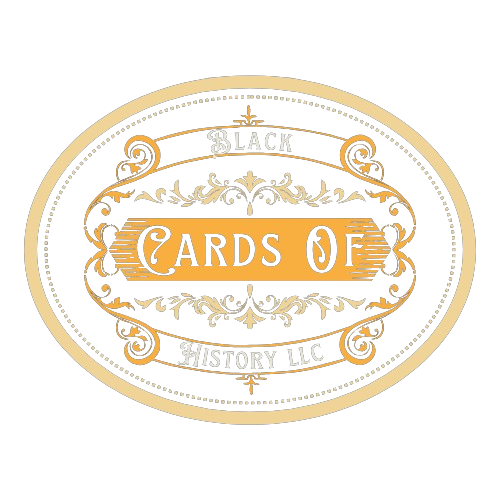When Maturity Misses the Mark: Minoru Mineta, Black History Month, and the Power of Taking Things Seriously
Rise Beyond Legacy x My Hero Academia Final Season Preblogs
By Sterling, Founder of Black Cards Of History LLC
Introduction
Let me just say this: writing about Mineta in this series genuinely tested my patience. Out of respect for the integrity of Black History Month and everything this "Rise Beyond Legacy" project stands for—heart, humility, and the pursuit of justice—I had to ask myself whether Mineta deserved to be included at all.
Spoiler alert: he barely made the cut.
I originally wanted to give him a flat-out 0/10, but after some long reflection (and a begrudging ounce of fairness), I settled on a 1/10. And trust me—that 1 is a pity point.
Section 1: The Pity Point — Why Mineta Gets a 1/10 (And Not a 0)
Let’s be real. Minoru Mineta is known more for being inappropriate, self-centered, and immature than for anything remotely heroic. His obsession with gaining attention—especially from girls—overshadows what little potential for growth he might have.
That said, I gave him one point because—hypothetically—he might show up for Black History Month if:
- It made him look good.
- It gave him a shot at impressing people.
- Or someone in class guilt-tripped him into it.
So no, his participation wouldn't come from genuine respect, education, or empathy. But in a group project format, with some structure (and maybe Bakugo yelling at him to do something), he might at least turn in a last-minute PowerPoint. Probably filled with clip art, random facts, and misspelled names. But technically… that’s something.
Section 2: If He Had to Contribute: Chaos in the Classroom
If Mineta were forced to participate in a Black History Month assignment, there’s a good chance his submission would be tone-deaf, cringey, or downright insulting.
This is the type of student who would Google “famous Black people,” pick the most well-known names, and slap together a five-slide presentation titled something like:
“Cool Black People Who Did Stuff”
(Yes, I cringed typing that.)
He wouldn’t understand the deeper importance of the celebration: the legacy of resistance, the power of cultural identity, or the fight for economic and racial justice. And worse, he wouldn’t care. Which, to me, is the reason this conversation needs to happen.
Because we all know a “Mineta” in real life, someone who:
-
Treats Black history—and any cultural history—as optional rather than essential
-
Sees cultural awareness as a trend to follow, not a truth to live by or respect
-
Views heritage months as calendar events, not calls to deeper understanding
-
Performs allyship publicly but lacks substance privately
-
Uses diversity as a checkbox instead of a commitment
-
Quotes historical figures without honoring their struggle
-
Reduces lived experiences to marketing moments or curated hashtags
-
Celebrates culture only when it’s comfortable, profitable, or expected
Section 3: The YouTube Assignment—Disaster in the Making
Now let’s talk about the nightmare fuel that would be Mineta’s YouTube video assignment.
You know those YouTube videos that go viral for all the wrong reasons? Yeah, Mineta’s would be that. I can already imagine the cursed thumbnail and title:
“Smash or Pass: Black Women in History 💥💔”
Cue the instant backlash, the teacher suspending his upload rights, and a full class apology session.
This wouldn’t be about admiration, intellect, or even misguided curiosity—it would be a shallow, objectifying mess. A complete misreading of the assignment. A case study in what happens when you mix privilege, ignorance, and a YouTube camera.
If there’s one lesson to take from this, it’s this: not everyone deserves a platform during moments that require reverence. And that’s not gatekeeping—it’s accountability.
Section 4: My Honest Take — Why Mineta Is the Reminder We Didn't Want (But Maybe Needed)
Mineta’s inclusion in this series isn’t a celebration—it’s a contrast. He’s a reminder that not showing up for cultural history isn’t neutral. It’s dismissive. Harmful. Lazy. And way too common.
He represents those who mock Black culture while consuming it. Those who want the rhythm but not the blues. The folks who repost “Black excellence” for clout but would never advocate for economic justice, reparations, or mental health funding in Black communities.
So no, Mineta doesn’t get applause here. But his presence offers a teaching moment. One that reminds us:
- We need maturity in allyship.
- We need sincerity in cultural representation.
- And we need to call out those who joke when it’s time to learn.
Closing Thoughts
Black History Month is not a time for performative projects or attention-seeking antics. It’s a sacred opportunity to honor legacy, highlight overlooked heroes, and connect the past to the pursuit of justice today.
Mineta might not get that.
But we do.
And that’s what matters.

